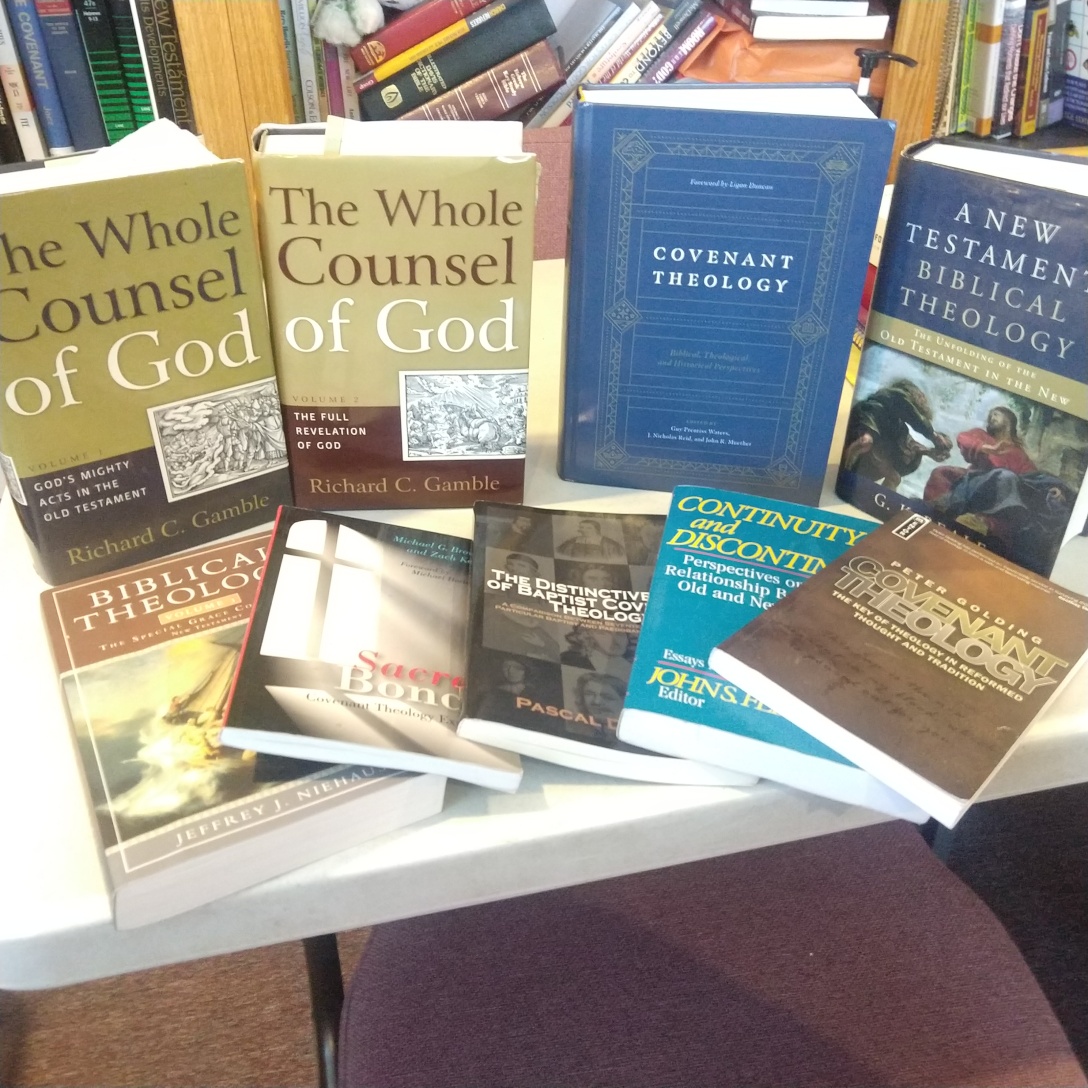Credo-baptism and the Covenant of Grace
I have taken a quick look at the way paedo-baptist covenant theologians understand baptism as a sign of the New covenant aspect of the covenant of grace, but of course many Baptists are Reformed yet they reject the baptism of infants as unbiblical. Baptists see the covenant of grace as incorporating the regenerate only, not the so-called “historical elect” – those who have been sprinkled as babies but have yet to express a personal faith in Christ. From the paedo-baptist point of view the mixed nature of the Mosaic [old] covenant continues with the New covenant. That is why they baptize infants. That is also why the Puritan John Ball claimed that “the Pharisees were in the Covenant of Grace all the while being excluded from its substance.” – Pascal Denault, The Distinctiveness of Baptist Covenant Theology, 48. But this is not the case with credo-baptists. As the name suggests, these Reformed Baptists believe that a person must be born-again through personal trust in the Gospel to be included in the covenant.
What results from this difference is two “federalisms” or two approaches to covenant headship. As Denault notes in his excellent book on the subject, the issue is the question of who make up the people of God (7). For Baptists the New covenant is the covenant of grace and the old covenant is not. In fact, the old covenant is the covenant of works! This means that for Reformed Baptists the new covenant is not an administration of the covenant of grace like it is for Presbyterians and Dutch Reformed, but the two are the same covenant. Therefore, there is no mixed company of saved and unsaved in the covenant of grace cum new covenant (Ibid, 32).
The concept of the covenant of grace then is at the center of the disagreements between paedo- and credo-baptists. They both agree on the main thing. For example:
“Reformed orthodoxy recognized only one Covenant of Grace within which only one Gospel and one redeemed people were found.” – Ibid, 36.
However, paedo-baptists believe that the promise was made with the whole seed of Abraham, whereas credo-baptists tend to see the promise as made with the Seed, Jesus Christ (see, Philip D. R. Griffiths, Covenant Theology: a Reformed Baptist Perspective, 55). OT believers had faith in Christ and were part of the covenant of grace/new covenant, although they had less light than NT believers.
Tom Hicks of Founder’s Ministries provides a good summation of the difference of approach as well as the similarities,
“Baptist covenant theologians… believe they are more consistent than their paedobaptist brothers with respect to covenant theology’s own hermeneutic of New Testament priority. According to the New Testament, the Old Testament promise to “you and your seed” was ultimately made to Christ, the true seed (Gal 3:16). Abraham’s physical children were a type of Christ, but Christ Himself is the reality. The physical descendants were included in the old covenant, not because they are all children of the promise, but because God was preserving the line of promise, until Christ, the true seed, came. Now that Christ has come, there is no longer any reason to preserve a physical line. Rather, only those who believe in Jesus are sons of Abraham, true Israelites, members of the new covenant, and the church of the Lord Jesus (Gal 3:7). In both the Old and New Testaments, the “new covenant” is revealed to be a covenant of believers only, who are forgiven of their sins, and have God’s law written on their hearts (Heb 8:10-12).” – Tom Hicks, “What is a Reformed Baptist?” (Point 2: Covenant Theology).
The acceptance of only true believers who have requested baptism as church members rather than believers and their children effects ecclesiology as well as soteriology, but I shall not pursue that issue here. Suffice it to say that there is a lot of agreement between Reformed paedo-baptists and Reformed credo-baptists, but there is divergence on their understanding particularly of the covenant of grace.
To sum up, in the Reformed Baptist position all the believers and only believers are included within the one covenant of grace. This covenant of grace is identical with the new covenant. However, “the external aspects of the covenant” do not impinge upon “its internal substance.” (Denault, 146). That is to say, the new covenant qua covenant of grace was doing its work internally before it was revealed externally as the new covenant. As this is true the old covenant cannot be the covenant of grace in a former administration. The promise of a “seed” to Abraham does not include his natural seed so much as his spiritual seed in Christ.

[…] Por Paul Henebury […]
I think this post is an accurate presentation of the standard Reformed paedobaptist and Reformed Baptist positions. While I am a Reformed paedobaptist (in the Dutch Reformed tradition), I would actually agree with Reformed Baptists on the point that the New Covenant includes only the regenerate. I believe the Bible shows that the principle individual benefits of the New Covenant (the Spirit’s work on the heart and the forgiveness of sins) were secured by Christ at the cross and are enjoyed by believers of all eras (OT and NT). To me this is a separate issue from the question of who is included in the “people of God” and entitled to covenant signs/ordinances.
Michael, if you wouldn’t mind, into Who or What do you believe children of believers are being baptized?
Interesting take Michael. Thank you for your comment.